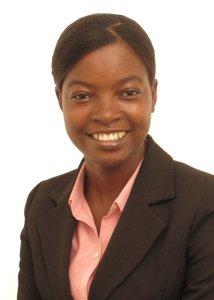
Dora B. Mawutor is a Programme Officer at the Media Foundation for West Africa (MFWA), Ghana. She is also in charge of leading MFWA’s Internet Freedom and Digital Rights Advocacy in Ghana and the rest of West Africa. She has a Masters of Philosophy Degree in Communication Studies and a Bachelor of Arts Degree in Information Studies and French, all from the University of Ghana.
The 2014 African School on Internet Governance (AfriSIG) was full of diverse experiences and a great platform to meet people from different parts of the continent and resource persons with in-depth knowledge and varied experiences in Internet Governance (IG) issues. The openness and readiness of resources persons during and after the different sessions was very commendable.
The different sessions came with their own issues. Some of the sessions were very intense and there were times I felt there was information overload – so much to grasp and process to understand what was being taught. One issue that bogged down many participants almost throughout the four-day training was the use of acronyms; but gradually, with the help of facilitators, we managed to make sense of a number of them.
The practicum sessions and their plenaries in particular brought on board new perspectives that I had until AfriSIG 2014 not been exposed to. We were voluntarily put in four groups to come up with recommendations to the African Union Conference of Ministers to address the issue of accountability in internet governance in Africa in preparation of a Declaration on Internet Governance for Africa. I have worked in groups before so the different perspectives and prolonged debates on issues was no new to me as building consensus does not come easy – a fact that was reiterated almost at every session when multistakholderism in IG issues were discussed.
The dimension that was rather new to me was the insistence on the use of specific terms and the need to reference documented and recognised definitions in formulating our recommendations.
I have read a number of resolutions, declarations and draft proposals; the most recent of which was the African Declaration on Internet Rights and Freedom. I had seen the language and referencing used in those documents but with a different perspective. But now being part of the process of drafting one of such documents gave me a new insight. It also helped me to understand why such documents are almost always written in the language and format in which they are presented – “Acknowledging that…, Recognising that…, Noting…,” etc. In other words, not just any term can be used in such documents except as has been defined in recognised texts.
The practicum and plenary sessions together formed the icing on my cake at AfriSIG 2014. It was indeed a worthwhile experience!
Thank you, NEPAD, APC and all the partners and resource persons who made AfriSIG 2014 possible.
